第133章 What I Owe to America(2)
How good an American has the process of Americanization made me? That Icannot say.Who can say that of himself? But when I look around me at the American-born I have come to know as my close friends, I wonder whether, after all, the foreign-born does not make in some sense a better American--whether he is not able to get a truer perspective;whether his is not the deeper desire to see America greater; whether he is not less content to let its faulty institutions be as they are;whether in seeing faults more clearly he does not make a more decided effort to have America reach those ideals or those fundamentals of his own land which he feels are in his nature, and the best of which he is anxious to graft into the character of his adopted land?
It is naturally with a feeling of deep satisfaction that I remember two Presidents of the United States considered me a sufficiently typical American to wish to send me to my native land as the accredited minister of my adopted country.And yet when I analyze the reasons for my choice in both these instances, I derive a deeper satisfaction from the fact that my strong desire to work in America for America led me to ask to be permitted to remain here.
It is this strong impulse that my Americanization has made the driving power of my life.And I ask no greater privilege than to be allowed to live to see my potential America become actual: the America that I like to think of as the America of Abraham Lincoln and of Theodore Roosevelt--not faultless, but less faulty.It is a part in trying to shape that America, and an opportunity to work in that America when it comes, that I ask in return for what I owe to her.A greater privilege no man could have.
Edward William Bok: Biographical Data 1863: Born, October 9, at Helder, Netherlands.
1870: September 20: Arrived in the United States.
1870: Entered public schools of Brooklyn, New York.
1873: Obtained first position in Frost's Bakery, Smith Street, Brooklyn, at 50 cents per week.
1876: August 7: Entered employ of the Western Union Telegraph Company as office-boy.
1882: Entered employ of Henry Holt & Company as stenographer.
1884: Entered employ of Charles Scribner's Sons as stenographer.
1884: Became editor of The Brooklyn Magazine.
1886: Founded The Bok Syndicate Press.
1887: Published Henry Ward Beecher Memorial (privately printed).
1889: October 20: Became editor of The Ladies' Home Journal.
1890: Published Successward: Doubleday, McClure & Company.
1894: Published Before He Is Twenty: Fleming H.Revell Company.
1896: October 22: Married Mary Louise Curtis.
1897: September 7: Son born: William Curtis Bok.
1900: Published The Young Man in Business: L.C.Page & Company.
1905: January 25: Son born: Cary William Bok.
1906: Published Her Brother's Letters (Anonymous): Moffat, Yard & Co.
1907: Degree of LL.D.of Order of Augustinian Fathers conferred by order of Pope Pius X., by the Most Reverend Diomede Falconio, D.D., Apostolic Delegate to the United States, at Villanova College.
1910: Degree of LL.D.conferred, in absentia, by Hope College, Holland, Michigan (the only Dutch college in the United States).
1911: Founded, with others, The Child Federation of Philadelphia.
1912: Published: The Edward Bok Books of Self-Knowledge; five volumes: Fleming H.Revell Company.
1913: Founded, with others, The Merion Civic Association, at Merion, Pennsylvania.
1915: Published Why I Believe in Poverty: Houghton, Mifflin Company.
1916: Published poem, God's Hand, set to music by Josef Hofmann:
Schirmer & Company.
1917: Vice-president Philadelphia Belgian Relief Commission.
1917: Member of National Y.M.C.A.War Work Council.
1917: State chairman for Pennsylvania of Y.M.C.A.War Work Council.
1918: Member of Executive Committee and chairman of Publicity Committee, Philadelphia War Chest.
1918: Chairman of Philadelphia Y.M.C.A.Recruiting Committee.
1918: State chairman for Pennsylvania of United War Work Campaign.
1918: August-November: visited the battle-fronts in France as guest of the British Government.
1919: September 22: Relinquished editorship of The Ladies' Home Journal, completing thirty years of service.
1920: September 20: Upon the 50th anniversary of arrival in the United States, published The Americanization of Edward Bok.
The Expression of a Personal Pleasure I cannot close this record of a boy's development without an attempt to suggest the sense of deep personal pleasure which I feel that the imprint on the title-page of this book should be that of the publishing house which, thirty-six years ago, I entered as stenographer.It was there I received my start; it was there I laid the foundation of that future career then so hidden from me.The happiest days of my young manhood were spent in the employ of this house; I there began friendships which have grown closer with each passing year.And one of my deepest sources of satisfaction is, that during all the thirty-one years which have followed my resignation from the Scribner house, it has been my good fortune to hold the friendship, and, as I have been led to believe, the respect of my former employers.That they should now be my publishers demonstrates, in a striking manner, the curious turning of the wheel of time, and gives me a sense of gratification difficult of expression.
End